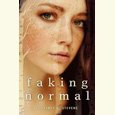A World of Dirty Secrets
In Purity, Jonathan Franzen’s characters struggle to stay clean in filthy times
The irony in the title of Jonathan Franzen’s new novel, Purity, becomes obvious in a matter of pages. As in his last novel, Freedom, the ideal announced by the title is brought crashing down to the realm of tainted mortals. Here Franzen creates a distinctly fallen world: motives are always mixed, and altruistic intentions are corrupted by selfishness. Love and hate merge from the outset (as do love and need—and obsession, and self-justification, and inertia). His characters are forever trying to recreate a paradise that never existed; they want to find their way back to the Garden, but the compass leads only in circles. They attempt to wipe slates clean, pay off debts, balance the scales of justice, absolve themselves of sin. But the job is never complete, the imperfections inexpungable. The impossibility of the quest does not stop the attempt; it simply entails a lifetime of scrubbing.
 Watter Al Bahry.jpg) Franzen returns to the theme of purity—and allied concepts, like cleanliness, saintliness, decency, continence—with dogged consistency. The central character, Purity “Pip” Tyler, received her name from her mother as a kind of calling, a charge to remain untouched by the world’s contamination. Working for a clean-energy company and struggling to make payments on her $130,000 college debt, Pip is recruited to join Andreas Wolf’s Sunlight Project, which is dedicated to shedding light on the dark worlds of corporate malfeasance and governmental hypocrisy. Pip’s lefty friends in Oakland compare Andreas Wolf favorably to Julian Assange: “Wiki was dirty—people died because of Wiki. Wolf is still reasonably pure. In fact, that’s his whole brand now: purity.”
Franzen returns to the theme of purity—and allied concepts, like cleanliness, saintliness, decency, continence—with dogged consistency. The central character, Purity “Pip” Tyler, received her name from her mother as a kind of calling, a charge to remain untouched by the world’s contamination. Working for a clean-energy company and struggling to make payments on her $130,000 college debt, Pip is recruited to join Andreas Wolf’s Sunlight Project, which is dedicated to shedding light on the dark worlds of corporate malfeasance and governmental hypocrisy. Pip’s lefty friends in Oakland compare Andreas Wolf favorably to Julian Assange: “Wiki was dirty—people died because of Wiki. Wolf is still reasonably pure. In fact, that’s his whole brand now: purity.”
The novel’s second long section moves back to Andreas Wolf’s experiences in East Berlin before the fall of the Soviet bloc. He rebels against his parents, who are sullied by their prominence in the East German regime, and winds up helping a teenage girl abused by her stepfather. Wolf believes that helping her, a beauty named Annagret, will allow both of them to begin anew: Annagret, he thinks, “must have been seeking the same thing he was. A cleaner way, an escape from the filth.”
The other main characters in Purity, Tom Aberrant and Leila Helou, are journalists who write for The Denver Independent, a charitable foundation-funded news service that is not beholden to advertisers. Tom and Leila live by the unfashionable credo that old-fashioned “boots on the ground reporting” continues to be the best bulwark against the excesses of corporations and governments alike. Leila distinguishes journalists, who “have some investment in civilization,” from the “leakers” who “just spew … like savages.” To her, Andreas Wolf “is a man so full of his own dirty secrets that he sees the entire world as dirty secrets. Fling everything at the wall, like a four-year-old flinging poop, and see what sticks.”
 Appropriately for a story whose central figure is named Pip, the plot of Purity revolves around questions of parenthood. Orphans, half-orphans, and wannabe-orphans abound. Pip, who has never known her father, suffers from the lack of positive male influence. When she throws herself at Stephen, an older man who has just separated from his wife (an excruciating scene), he tells her he views her as a daughter, not a potential lover. When she insists that she doesn’t “need another parent,” Stephen points out the obvious: “Well, actually, it kind of seemed like you did,” he says. “Like a father was exactly what you needed.”
Appropriately for a story whose central figure is named Pip, the plot of Purity revolves around questions of parenthood. Orphans, half-orphans, and wannabe-orphans abound. Pip, who has never known her father, suffers from the lack of positive male influence. When she throws herself at Stephen, an older man who has just separated from his wife (an excruciating scene), he tells her he views her as a daughter, not a potential lover. When she insists that she doesn’t “need another parent,” Stephen points out the obvious: “Well, actually, it kind of seemed like you did,” he says. “Like a father was exactly what you needed.”
On the flipside, having parents demands a whole other set of obligations and unwanted legacies. Tom’s ex-wife, Annabel, becomes so disenchanted with her enormously wealthy, agri-mogul father that she completely disconnects from him, preferring a life of righteous poverty over one of privilege built on environmental exploitation. Tom himself feels imposed upon by his mother, an East German whose early experiences with state-sponsored socialism turns her into a committed capitalist and aspirational Republican. When she dies, though Tom has learned to respect her difficult journey, he nonetheless feels liberated: “My parents had both bowed out now, leaving the entire field to me.”
Franzen has a talent, unmatched in contemporary letters, for making unlikable characters sympathetic. Readers don’t fall in love with his creations—who are, in some cases, downright repellant—but he renders their plights with an intimacy that draws us in. Among Franzen’s cast of boors, misanthropes, and neurotics, his portrait of the writer Charles Blenheim, Leila’s husband (yes, though she lives with Tom—it’s complicated), captures the self-importance and acidic envy of the literary world without turning him into caricature. Franzen bestows care even on characters who play walk-on roles, like Annabel’s father, giving them distinctive voices and palpable desires. Purity is a long novel, but nothing in it feels padded or inessential.
Franzen resists the recent trend toward short chapters and rapid cuts among characters. His last three novels instead feature long episodes, novella-length each, that center on frantic characters facing momentous choices. Their actions—desperate, passionate, sometimes hopeless—reveal their deepest insecurities and desires, feelings that they have tried to hide from themselves. Each sequence, propulsive with suspense and crowned with satisfying revelations, works like a musical movement, its melodies branching into variations that never lose the shape of the tune. Together they form a symphony whose themes will resound in the ear long after the music stops.
Critics who find Franzen’s work too cerebral will bridle at the long passages in Purity concerning the Internet, art, economics, and so forth. Reviewing The Corrections, Norman Mailer said that Franzen “may well have the highest IQ of any American novelist writing today” but, “like a polymath, he lives much of the time in Wonkville Hollow.” Franzen does indeed stuff his novels with arcane information, often reeled off at rates of speed that prohibit first-reading comprehension, but Mailer’s criticism misses what makes works like Purity engaging. Franzen enthusiasts appreciate a writer who depicts educated, professional adults in all their complexity, which includes their intellectual conflicts and the pressures of their white-collar occupations. Purity will reinforce the author’s reputation for tackling esoteric topics, but he never loses sight of the messy, fleshy humans who bring them to life.

Sean Kinch grew up in Austin and attended Stanford University as an undergraduate. He later returned to Austin, where he earned a Ph.D. in modern fiction from the University of Texas. He now teaches English at Montgomery Bell Academy in Nashville.


